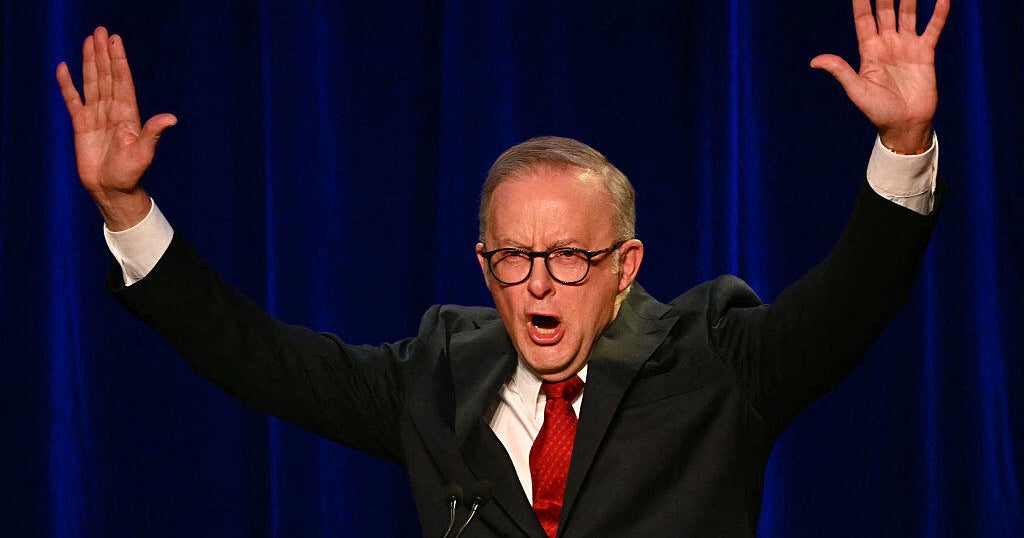Anthony Albanese Secures Historic Re-election as Prime Minister of Australia
Historic Election Outcome
In a landmark electoral victory, Prime Minister Anthony Albanese has made history by becoming the first Australian leader to win a second consecutive three-year term in over two decades. This achievement was confirmed following the elections held on May 3, 2025.
The ruling Labor Party is projected to secure around 70 seats in the House of Representatives, while the conservative opposition coalition led by Peter Dutton is expected to gain approximately 24 seats, amidst predictions of 13 seats allocated to independent and minor parties.
Opposition’s Acknowledgment
Following the election results, Dutton publicly accepted defeat. He remarked, “We didn’t do well enough during this campaign, that much is obvious tonight, and I accept full responsibility for that.” Dutton conveyed his congratulatory wishes to Albanese, acknowledging the significance of the Labor Party’s success.
Key Political Stances
The electoral campaign primarily revolved around pressing issues such as energy policy and inflation. Both factions recognized the severe cost-of-living crisis facing the nation, impacting millions of Australians.
Dutton’s Liberal Party asserted that government expenditures are a principal factor fueling inflation and vowed to reduce public service roles to cut costs. In contrast, the Labor Party criticized Dutton’s approach, dubbing him “DOGE-y Dutton” for his perceived alignment with American political maneuvers.
International Perspectives
U.S. Secretary of State Marco Rubio extended his congratulations to Albanese, emphasizing the deep-rooted alliance between the two nations. Rubio stated, “Australia is a valued ally, partner, and friend of the United States,” underscoring the mutual benefits of enhanced cooperation in various sectors.
Economic Context
This election occurs as Australia grapples with a cost-of-living crisis impacting approximately 3.4 million households last year, according to Foodbank Australia. The Reserve Bank’s move to lower interest rates to 4.1% aims to alleviate financial pressures, amidst international uncertainties influenced by U.S. tariff policies.
Future Prospects
Albanese’s re-election raises questions about potential governance arrangements with unaligned lawmakers, given that Labor holds a narrow majority of just 78 seats. Historical precedents indicate that a loss of more than two seats could lead to attempts to form a minority government.

